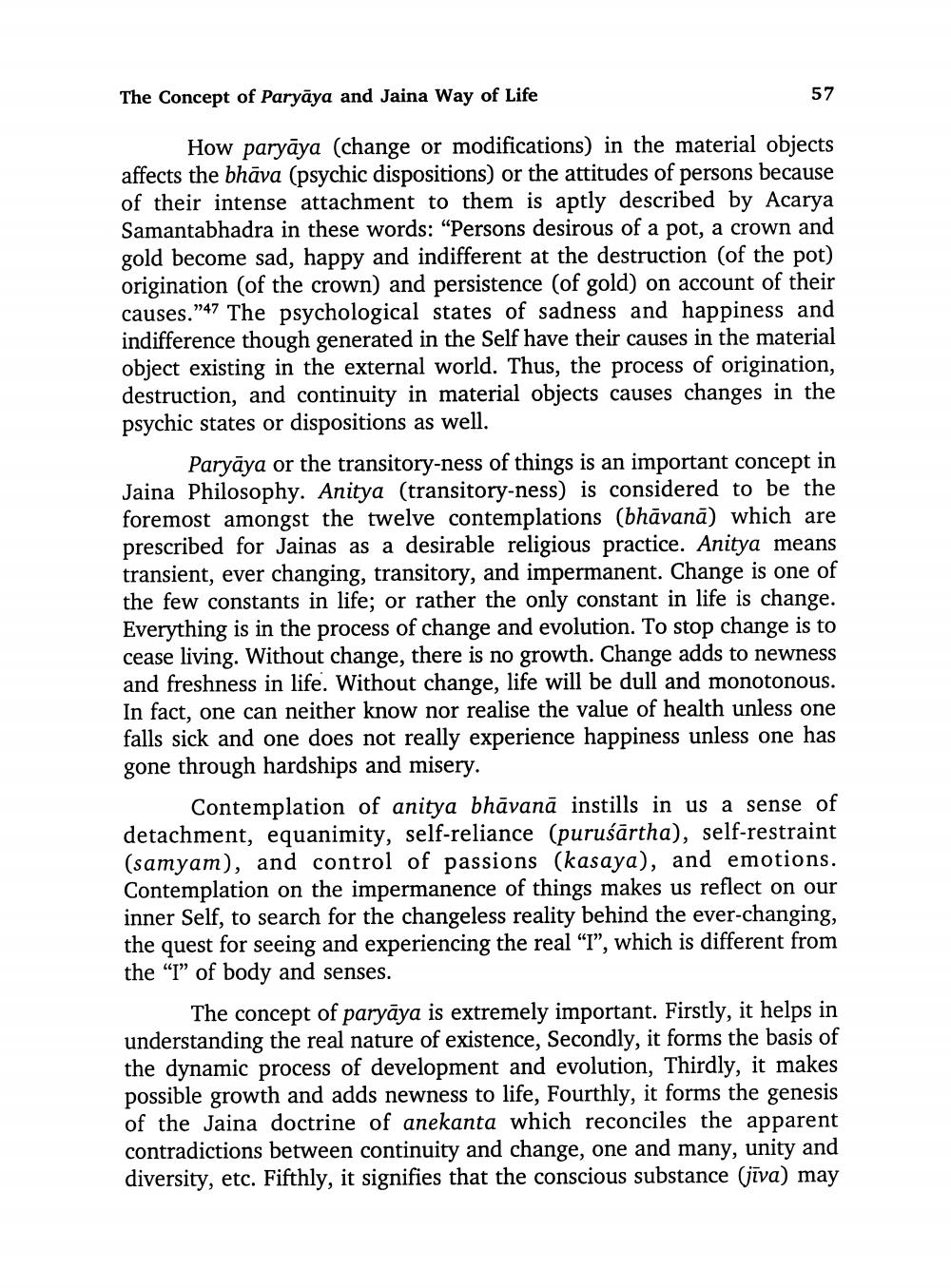________________ The Concept of Paryaya and Jaina Way of Life 57 How paryaya (change or modifications) in the material objects affects the bhava (psychic dispositions) or the attitudes of persons because of their intense attachment to them is aptly described by Acarya Samantabhadra in these words: "Persons desirous of a pot, a crown and gold become sad, happy and indifferent at the destruction (of the pot) origination (of the crown) and persistence (of gold) on account of their causes. "47 The psychological states of sadness and happiness and indifference though generated in the Self have their causes in the material object existing in the external world. Thus, the process of origination, destruction, and continuity in material objects causes changes in the psychic states or dispositions as well. Paryaya or the transitory-ness of things is an important concept in Jaina Philosophy. Anitya (transitory-ness) is considered to be the foremost amongst the twelve contemplations (bhavana) which are prescribed for Jainas as a desirable religious practice. Anitya means transient, ever changing, transitory, and impermanent. Change is one of the few constants in life; or rather the only constant in life is change. Everything is in the process of change and evolution. To stop change is to cease living. Without change, there is no growth. Change adds to newness and freshness in life. Without change, life will be dull and monotonous. In fact, one can neither know nor realise the value of health unless one falls sick and one does not really experience happiness unless one has gone through hardships and misery. Contemplation of anitya bhavana instills in us a sense of detachment, equanimity, self-reliance (purusartha), self-restraint (samyam), and control of passions (kasaya), and emotions. Contemplation on the impermanence of things makes us reflect on our inner Self, to search for the changeless reality behind the ever-changing, the quest for seeing and experiencing the real "I", which is different from the "I" of body and senses. The concept of paryaya is extremely important. Firstly, it helps in understanding the real nature of existence, Secondly, it forms the basis of the dynamic process of development and evolution, Thirdly, it makes possible growth and adds newness to life, Fourthly, it forms the genesis of the Jaina doctrine of anekanta which reconciles the apparent contradictions between continuity and change, one and many, unity and diversity, etc. Fifthly, it signifies that the conscious substance (jiva) may




